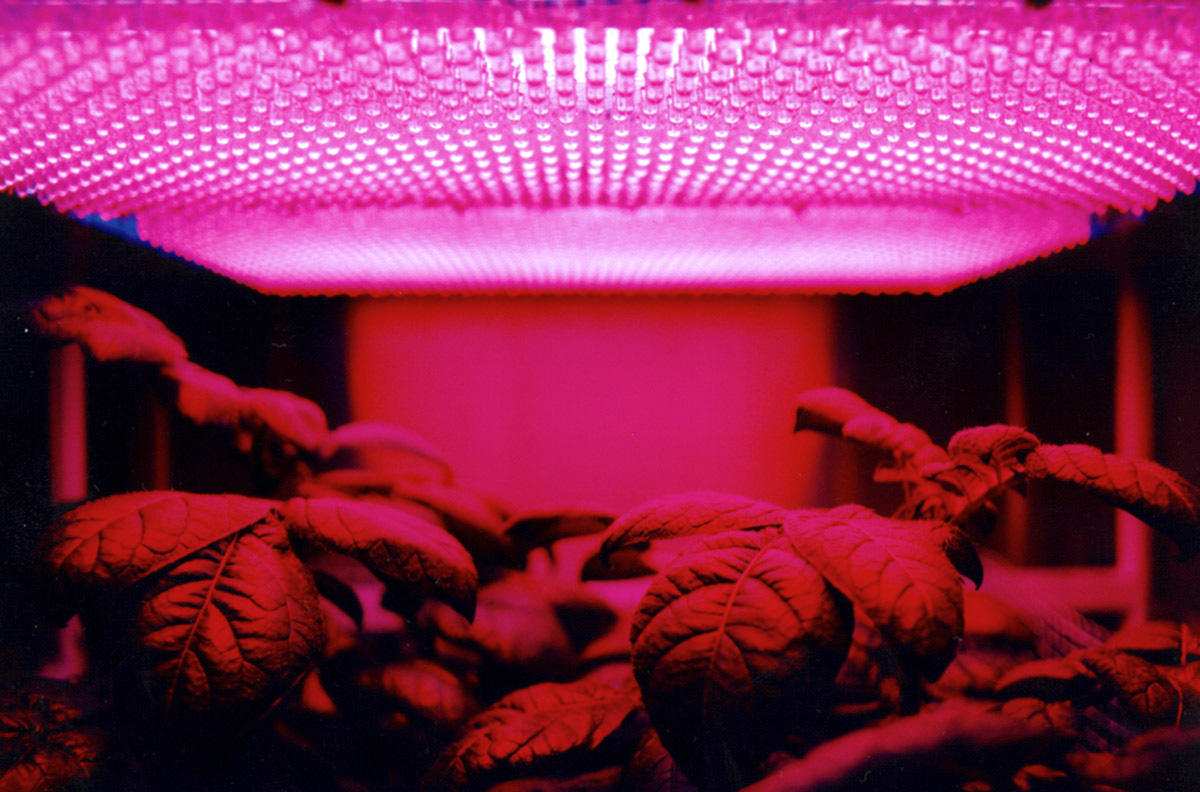
Study Shows Growing Plants in Space without Human Intervention Possible
March 21, 2024| |
In a paper published in the journal Device, researchers from the University of Illinois Urbana-Champaign report that new, highly stretchable polymer sensors can monitor and transmit plant growth information without human intervention. The study provides details of earlier research that investigated how wearable printed electronics can make farming possible in space.
According to chemical and biomolecular engineering professor Ying Diao, who led the study with plant biology professor and department head Andrew Leakey, the polymer sensors called ‘Stretchable-Polymer-Electronics-based Autonomous Remote Strain Sensor,' or SPEARS2, are resilient to humidity and temperature, can stretch over 400% while remaining attached to a plant as it grows, and send a wireless signal to a remote monitoring location.
SPEARS2 is the product of three years of hard work which was initially expected to run for only a few months. The team realized that their polymer was too rigid and reformulated a lot of the components to make them more soft and stretchable. They adjusted their printing method so that they did not form large crystals during the printing and curing process. The team landed on a very thin film device that helps restrain the crystal growth during assembly and printing.
For more details, read the article on the Illinois Institute for Genomic Biology website.
| |
You might also like:
- FAO Expects Return of Seeds from Space
- World's First Rice Seeds Grown and Harvested in Orbit in Chinese Spaceflight Returns to Earth
- Study Shows CRISPR Works Well in Outer Space
Biotech Updates is a weekly newsletter of ISAAA, a not-for-profit organization. It is distributed for free to over 22,000 subscribers worldwide to inform them about the key developments in biosciences, especially in biotechnology. Your support will help us in our mission to feed the world with knowledge. You can help by donating as little as $10.
-
See more articles:
-
Plant
- Experts in Australia Find Ways to Improve Disease Resistance of Narrow-leafed Lupins
- Gene Knockout Provides Insights to Reducing Cadmium in Rice Grains
- Study Unveils the Role of CAX1 Gene in Improving Plant Tolerance to Flooding
-
Food
- FSANZ Calls for Comments on Food Derived from GM Corn MON94804
- Study Shows Growing Plants in Space without Human Intervention Possible
- Transgenic Cow Generates Milk With Human Insulin
-
Health
- GM Bacterium Produces Precursor of an Alzheimer's Drug
- Researchers Take a Step Forward in Developing Bioengineered Protein Against COVID-19
-
Read the latest: - Biotech Updates (December 17, 2025)
- Gene Editing Supplement (December 17, 2025)
- Gene Drive Supplement (February 22, 2023)
-
Subscribe to BU: - Share
- Tweet

